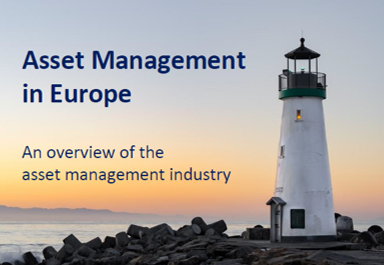Sustainable Finance
The asset management industry plays a key role in meeting the objectives of the European Green Deal to make the EU’s economy sustainable. Our members integrate ESG considerations across their risk management processes and investment decisions. They develop sustainable investment products and foster transparency to fight greenwashing. This increases choice, trust and, in turn, retail investors’ participation. Overall, such efforts mobilise capital towards a fair and just transition to a climate-neutral economy by 2050.
EFAMA actively contributes to the development and implementation of EU’s sustainable finance initiatives. Among them are a comprehensive transparency framework for financial market participants, standards and labels for green financial products, classification of green economic activities and policies enhancing corporate sustainability reporting.
EFAMA reply to JRC CP on 3rd technical report: Development of EU Ecolabel Criteria for Retail Financial Products
Article 8 of the Taxonomy Regulation - EFAMA reply to ESMA CP on draft advice to EU Commission
In its support of the development and implementation of the Taxonomy Regulation, EFAMA believes that reporting on the level of alignment with the Taxonomy by non-financial and financial undertakings is essential to strengthening market integrity around sustainability issues.
EFAMA's reply to ESAs Survey on templates for environmental and/or Social Financial Products under SFDR
EFAMA, the voice of the European investment management industry, believes that, for retail clients, standardised disclosure of information can improve the comparability of financial products that promote environmental and/or social characteristics or have a sustainable objective. It will also contribute to the broader policy objectives of the Sustainable Finance Disclosures Regulation (SFDR) to enhance transparency towards end-investors, hold market participants accountable and fight greenwashing.
EFAMA urges regulators to include third party ESG data providers in their new framework for ESG ratings providers
The European Commission has taken a significant stride with its newly unveiled proposal on Environmental, Social, and Governance (ESG) rating activities, which aims to provide a more comprehensive understanding of ESG ratings methodologies, data sources, and potential biases, ultimately empowering investors to make informed decisions.
Bringing ESG Ratings and ESG Data Providers within the Regulatory Perimeter
Environmental, social, and governance (ESG) considerations play a crucial role in asset managers' investment decisions for several reasons:
Bringing ESG ratings and data providers within the regulatory perimeter
Today, the European Commission has released their proposal for a regulation on ESG ratings and data providers.
3 questions to Thierry Bogaty on the EU Ecolabel for retail financial products
Q #1 Can the EU Ecolabel for retail financial products help channel individual investors’ savings into environmentally sustainable projects?
A well-designed EU Ecolabel has the potential to provide clear guidance on the financial products retail investors can invest in if they wish to support environmentally sustainable projects and activities - in line with the EU Taxonomy Regulation. The European Commission wants to create a trusted and verified label for retail investors, who would benefit from better comparability of financial products.
Asset Management Report 2019
The EFAMA Asset Management in Europe report aims at providing facts and figures to gain a better understanding of the role of the European asset management industry. It takes a different approach from that of the other EFAMA research reports, on two grounds. Firstly, this report does not focus exclusively on investment funds, but it also analyses the assets that are managed by asset managers under the form of discretionary mandates. Secondly, the report focuses on the countries where the investment fund assets are managed rather than on the countries in which the funds are domiciled.

































